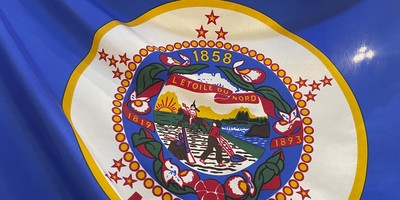Imagine for a moment that you are on your way to work driving down Main Street. You only make $25,000 a year so you can’t afford to replace your broken tail light that got smashed last week in a fender bender.
As you drive down Main Street the police pull you over and write you up a one-hundred dollar ticket. You try to explain to the officer your financial situation but he doesn’t listen and tells you to pay your fine or face jail time.
A month goes by but you still don’t have enough money to pay the ticket. You’re given additional time to pay, but the courttacks on additional late fees every month. A couple of months go by and your hundred dollar ticket becomes a thousand dollar problem.
Eventually, the police come to your house and take you to prison. You’re too poor to hire a lawyer so you take the guilty plea and serve jail time. As a result, you lose your job and the cycle of poverty deepens. All because of a minor, non-violenttraffic offense.
This scenario is more common than you think. Wealthier individuals typically avoid this scenario by paying off the fine right away. A poor person doesn’t have this option.
High fines for nonviolent offenses and high court fees have the effect of trapping poor Americans into a cycle of poverty. Thomas Harvey, founder of ArchCity Defenders (a St. Louis-area public defender group), calls these fees “illegal and harmful practices.”
He goes on to say that these ridiculously high fees are more about local governments increasing their revenue stream than restoring justice.
His sentiment seems to have some weight behind it. Consider the city of Ferguson, Missouri. In 2013, nearly 33,000 arrest warrants were issued for nonviolent offenses in a population of only 21,000 people. That same year, the city of Ferguson collected $2.6 million in court fines and fees, which was the city’s second largest source of revenue. The local government money grab narrative is quite believable.
Recommended
But not only have local governments turned to high court fees to get more money, many have hired for-profit probation companies to collect these fees. Private probation companies tack on their own additional cost to already high court fees making the situation for poor Americans even worse.
Harriet Cleveland of Montgomery, Alabama knows this all too well.
After getting ticketed for driving without car insurance and a license, Harriet was too poor to pay off the entire fine. At the time, a private probation company called Judicial Correction Services (JCS) collected fees for the city of Montgomery, so Harriet had to pay the court through JCS.
As it turned out, nearly a third of Harriet’s monthly payments when directly to JCS and eventually, Harriet ran out of money. One day while she was babysitting her grandson, the police came and arrested Harriet. Being too poor to afford a lawyer, Harriet pleaded guilty and was sentenced to 31 days in prison.
A similar thing happened to a woman in Ferguson, Missouri named Ebony. Two weeks after she had given birth, Ebony was thrown in jail for a week due to unpaid traffic violation fines.
If this wasn’t horrible enough, many Americans, like Ebony and Harriet, are forced to pay “user fees” after their release. Inmates in over 41 states can be charged for room and board.
The question I want to ask is when did legalized profiting over poor Americans become acceptable in this country? Instead of keeping the peace and restoring justice in our cities, local governments have resorted to punishing the least among us.
And this is not just a local problem. According to the Congressional Research Service (CRS), the federal prison population has exploded by 800 percent since 1980. Federal funding for prisons is at an all-time high of $6.445 billion and 50 percent of federal prisoners are in jail for nonviolent drug offenses. The CRS cites mandatory minimum sentencing laws that over-criminalize nonviolent offenses as the source of the problem.
Over-criminalizing nonviolent offenses whether it’s done by excessive fines, high court fees, or one-size-fits-all mandatory minimum sentencing laws is wrong. Those who are struggling most in our society are the same people who are getting hit the hardest.
Reforming our criminal justice system is the only way to end the cycle of poverty that so many Americans are trapped in. Surely this is the least we can do.

























Join the conversation as a VIP Member